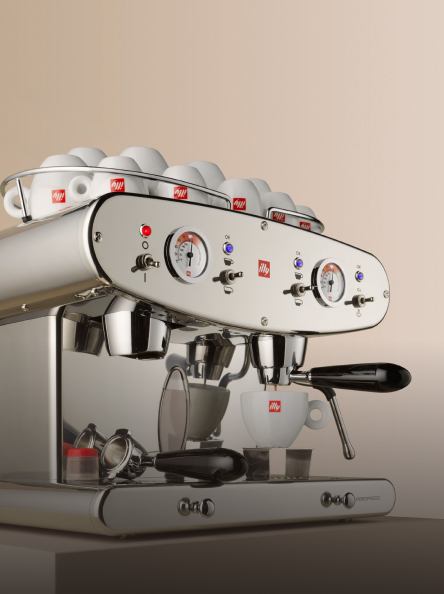In today’s hospitality industry, coffee plays a key role — not just as a product, but as a multisensory experience that shapes the overall perception of a venue.
In this article, you’ll discover how choosing the right coffee brands can become a strategic advantage, ensuring consistent quality, sustainability, and a stronger competitive position in the Horeca market.
Keep reading to learn more!
Why is choosing the best coffee brands strategic in the UK hospitality sector?
Because coffee is often the final touch that defines the entire customer experience — and in a bar, hotel, or restaurant, it can significantly influence how the service is remembered.
Below are the topics covered in this article. You can jump to the section you’re most interested in by clicking the corresponding link.
Quick links
- Coffee as a strategic lever in the hospitality sector
- What makes top-quality coffee brands?
- Responding to emerging trends in the UK market
- Why sustainability is a competitive advantage
Coffee as a strategic lever in the hospitality sector
In the British market, coffee continues to play a key role — even in a challenging macroeconomic climate. Despite inflation and cost pressures having shifted certain consumption habits, coffee is still perceived as an affordable luxury. According to a research by World Coffee Portal (Project Café UK 2024 Summary, March 2024), the UK coffee shop sector recorded steady sales growth (+6.8% YoY in 2023), highlighting both the industry’s resilience and strong consumer demand.
British consumers are not simply looking for the lowest price; they are increasingly focused on value for money, product provenance, and the overall experience. Coffee becomes a way to offer a “treat moment” — an indulgent experience that feels justifiable even amid growing budget constraints. In this context, experientiality and personalisation take centre stage.
This trend is reinforced by the growth of the independent coffee shop segment, which emphasises speciality products, exclusive blends, artisanal quality, and sustainability. Consumers are drawn to authenticity, personalised service, and a sense of community connection — reflecting a shift towards more conscious and value-driven choices.
Lumina Intelligence’s 2024 data support this view: drink quality and tailored service are among the top loyalty drivers. Moreover, the ritual of coffee is expanding to include new moments of consumption — from socialising with friends and family, to taking a break during hybrid workdays, to choosing coffee over more expensive social activities like eating out (Lumina Intelligence, How Consumer Trends Are Shaping the Future of Coffee Menus, April 2024).
Coffee has become an identity marker and a powerful differentiator for Horeca businesses. Offering an excellent espresso is not just a detail — it’s an investment in customer satisfaction, brand reputation, and business competitiveness.
What makes top quality coffee brands?
Good coffee brands start with good coffee partners. They are not just suppliers of raw materials — they are strategic partners in the success of any hospitality business. Their role extends far beyond coffee delivery: they contribute to building the customer experience, ensuring consistency in the offering, and supporting day-to-day operations.
Let’s take a closer look at the characteristics that define top-tiers coffee brands.
Expert consultancy and ongoing training
One of the cornerstones of an effective partnership is specialised advice. This includes support in selecting the right blends for your clients, customising the coffee offering, and training staff.
In a dynamic market like the UK — where trends such as cold brew, plant-based alternatives and functional drinks are on the rise — having a supplier who stays ahead of the curve can be the difference between a standard and a standout coffee service.
A complete service beyond coffee
The ideal coffee brands go beyond the bean. They offer a comprehensive solution: from espresso machines and brewing equipment (filter, drip, etc.), to in-cup quality control tools and complementary products like sugar, biscuits, or plant-based milks.
Branding materials and merchandising items also play a crucial role in strengthening the business identity and reinforcing a consistent customer experience.
Technical support and maintenance
Technical expertise is a must. The best partners don’t just install equipment — they offer reliable after-sales service, scheduled maintenance, troubleshooting, and rapid support when it’s needed most (e.g. during peak seasons or special events).
This ensures uninterrupted service and gives operators the peace of mind to focus on their customers.
Efficient logistics and order customisation
In the Horeca sector, business continuity is critical. A trustworthy supplier guarantees on-time delivery, efficient logistics, and the ability to handle custom orders, even on short notice.
This is especially vital in the UK, where eating out is frequent, often spontaneous, and strongly tied to perceived service quality.
Flexibility, transparency and co-design
A reliable coffee brand stands out for its transparency, clearly communicating the origin, quality and sustainability of the products. They also offer operational flexibility, adapting to the fast-paced, experience-driven nature of modern consumption.
In this context, the ability to co-design bespoke solutions with Horeca clients becomes a powerful competitive edge.
Consistent quality and rigorous control
Consistency is key. The flavour and quality of coffee must remain stable over time, delivering a reliable experience with every visit.
This requires rigorous batch management, quality control, and responsive service in the event of anomalies or urgent operational needs.

Responding to emerging trends in the UK market
In the UK, evolving consumer preferences are significantly reshaping supply, making constant innovation a prerequisite for staying competitive.
Let’s see some examples.
Functional beverages
One of the most prominent trends in recent years is the growing demand for functional beverages — drinks enriched with ingredients that provide added health benefits, such as plant-based proteins, probiotics, nootropics, and natural extracts that support digestion or boost energy. These options align perfectly with the lifestyles of health-conscious consumers who prioritise both physical and mental wellbeing.
Plant-based milk alternatives
At the same time, plant-based milk alternatives — including oat, soy, almond, and coconut — have become must-haves on menus. Their popularity goes beyond dietary restrictions or ethical choices: they’re appreciated for their flavour, versatility, and compatibility with modern coffee creations.
Seasonal and ready-to-drink coffees
Another fast-growing category is seasonal and ready-to-drink (RTD) coffee offerings, such as cold brew, coffee milkshakes, and flavoured iced beverages. These products are particularly popular during warmer months and in high-traffic urban environments. They meet the need for speed, convenience, and variety, especially among young adults — a key demographic for the Horeca channel.
.jpeg?width=500&height=500&name=cq5dam.web.1280.1280%20(86).jpeg)
For businesses in the industry, keeping pace with these trends it’s about anticipating customer needs, differentiating the offer, and delivering a modern, flexible experience that reflects new lifestyles.
Partnering with a coffee brand that is in tune with these emerging trends allows Horeca operators to adapt quickly, surprise even the most demanding customers, and strategically refresh the menu. With the support of an innovative supplier, each business can enrich their offering, stand out from the competition, and foster stronger customer loyalty.
In today’s market, menu innovation is a powerful lever for growth and differentiation.
Why sustainability is a competitive advantage
In the Horeca sector, sustainability has become increasingly central — not just as an ethical value, but as a tangible competitive asset. In a mature and highly aware market like the UK, a business’s environmental and social practices directly influence how customers perceive the coffee brand.
According to the World Coffee Portal, more than 70% of UK consumers say they take sustainability practices into account when choosing where to drink coffee away from home — an insight that cannot be ignored by any café, hotel, or restaurant operator (UK Coffee Market Trends, 2025).
To meet these expectations, it is essential to choose coffee brands that adopt a solid, integrated, and transparent approach to sustainability. This means partnering with companies that are committed to structured initiatives such as carbon neutrality, compostable or recyclable packaging, responsible and traceable sourcing, and the use of regenerative ingredients. It’s not just about offering a product with a low environmental impact — it’s about embracing a virtuous supply chain that protects origin territories, supports local farming communities, and ensures high quality standards at every stage of the production process.
In today’s landscape — where the experience matters just as much as the product — sustainability is also a powerful lever for communication and storytelling. A coffee served at the table becomes an opportunity to convey values, differentiate your brand positioning, and build a stronger emotional connection with customers. Increasingly, consumers — particularly younger, urban audiences — reward businesses that demonstrate consistency between what they offer and what they stand for.
Choosing a supplier committed to sustainable practices means delivering real added value: a product that is not only good, but also fair and aligned with the priorities of today’s consumers. For Horeca businesses, this translates into greater customer loyalty, a stronger reputation, and the ability to stay ahead of market trends.
For over 90 years, the illy brand has been synonymous with excellence in the world of coffee, internationally recognised and chosen by more than 100,000 businesses worldwide, including prestigious hotels and restaurants.
Every day, over 6 million cups of illy coffee are enjoyed around the globe — all delivering the brand’s unmistakable flavour, the result of a unique blend of the finest 100% Arabica beans, sourced from 140 countries and kept consistent through rigorous quality controls.
But illy is more than an exceptional coffee brand — it’s also a symbol of concrete commitment to sustainability.
As the first Italian coffee company to become a Certified B Corp, illy has been championing ethical, transparent, and responsible practices throughout its supply chain for over 30 years.
In 2023, illy was named one of the World’s Most Ethical Companies for the 11th consecutive year and was recently awarded the EcoVadis Gold Medal, placing it in the top 5% of companies worldwide and the top 2% in the food sector for environmental, social, and ethical performance.
If you’re a Horeca operator looking for reliable and innovative coffee brands, we’re here to help.
Our consultants are available to provide you with all the information you need — with no obligation.
Book a free trial!
In the coffee shop world, every detail contributes to defining the unique customer experience when they approach the bar and order a coffee.
A thorough understanding of all aspects is crucial to drive the business towards sustainable success over time.
Subscribe to the illy newsletter to keep up to date with all the latest news from the Hospitality world!






